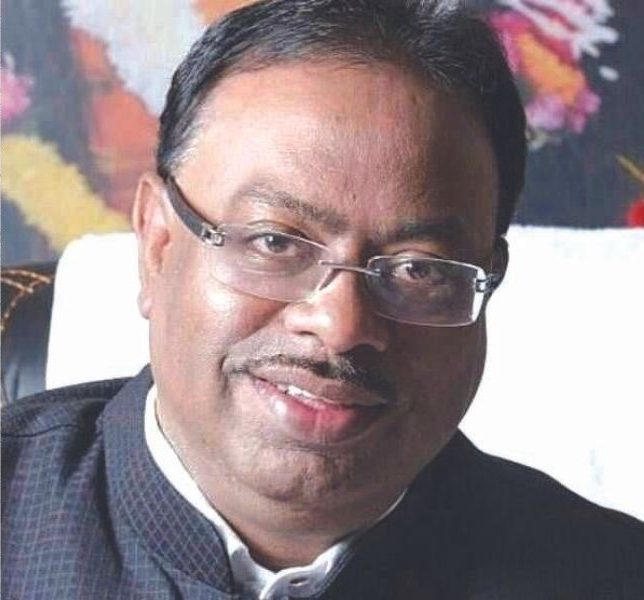-Dipta Joshi
On February 27, as Maharashtra celebrated Marathi Language Day on the birth anniversary of popular poet, Kusumagraj, 64,000 mostly Marathi medium private aided schools announced they would abstain from conducting the state government’s forthcoming class X and class XII board exams on their premises. The managements of these schools are on the warpath against the state government’s failure to reimburse Rs.520 crore of ‘non-salary grants’ for the academic years 2018-19 and 2019-20. The class X exams (March 15-April 4) and class XII exams (scheduled for March 4-April 30), conducted by the Maharashtra State Board of Secondary and Higher Secondary Education (MSBSHSE), are the state’s largest assessment exercise involving 3.4 million children.
Aided schools across the country — Maharashtra included — receive state government grants to cover teachers’ salaries. An additional non-salary or post-paid grant is paid to vernacular medium schools to make up for expenses they incur towards infrastructure development and maintenance. Under the Maharashtra Employees Private Schools Act (MEPS, 1977 & 1981)), all vernacular schools in the state are obliged to dispense free-of-charge education and are barred from taking any form of capitation fees or donations from their pupils.
Although the tradition of the state government paying teachers’ salaries of private aided schools (which enables the government to regulate their tuition fees) is well-entrenched, time and again the Maharashtra government has attempted to end non-salary grants. After two unsuccessful attempts in 1997 and 2003, in January 2013, the state passed a government resolution (GR) reducing the non-salary grant component to 5 percent of the salary grant of aided schools.
The constitutional validity of this GR was challenged by the Maharashtra Rajya Shikshan Santhan Mahamandal, an association comprising 30,000 private school trustees statewide. In 2017, after the Nagpur bench of the Bombay high court ruled in favour of the trustees, the government continued paying Rs.260 crore per year as non-salary grants to Marathi and other vernacular medium aided schools. In December 2020 however, the Mahamandal filed a contempt petition when non-salary grants for the academic years 2018-19 and 2019-20 remained unpaid.
In its response to the contempt petition, a government affidavit cited a decision taken by the state’s finance minister Ajit Pawar to end all non-salary grants from the year 2020. It further stated that aided vernacular schools incurred no expenses during the shutdown of schools for two years because of the Covid-19 pandemic. In court, government counsel suggested these schools should charge students Rs.1,000 per year as fees to cover non-salary expenses. With the court again ruling in favour of school managements, the government disbursed the first instalment of Rs.90 crore in January this year, promising to disburse another Rs.100 crore by March.

“Our students come from very poor homes and cannot pay any fees. On one hand, the state government has been proclaiming that schools have quickly shifted to online education across Maharashtra. But on the other hand, it says our schools have not incurred any expenses during the pandemic. Schools like us dispense 90 percent of education within the state even as government and municipal schools lag behind despite having access to larger government grants. We have used up our funds and public donations to provide online education, and if our non-salary grants are discontinued, we will have to shut down. We are left with no option but to excuse ourselves from allowing the use of our infrastructure to conduct board exams,” says Ravindra Fadnavis, secretary, Maharashtra Rajya Shikshan Santhan Mahamandal.
In this connection, it’s noteworthy that the state government’s record of reimbursing private unaided schools which have admitted poor neighbourhood children under s.12 (1) (c) of the RTE Act is also dismal. Under s.12 (2), the state government is obliged to reimburse private school fees according to a prescribed formula. But according to private school sources, a sum of Rs.1,600 crore is in arrears for four years (2018-19, 2019-20, 2020-21 and 2021-22). Now by asking vernacular schools to charge tuition fees to fund their expenses, the state government wants to duck its obligation to pay non-salary grants.
As we go to press, protesting school managements have agreed to allow the use of their schools as examination centres for the class XII exams beginning March 4 following the government’s assurances to fulfill all demands. However, wary of the government’s past reputation, the Mahamandal has threatened non-cooperation during the class X examinations beginning March 15, if the government doesn’t live up to its promise.
Also read: MSBSHSE reschedules exams after question papers get destroyed in fire


























